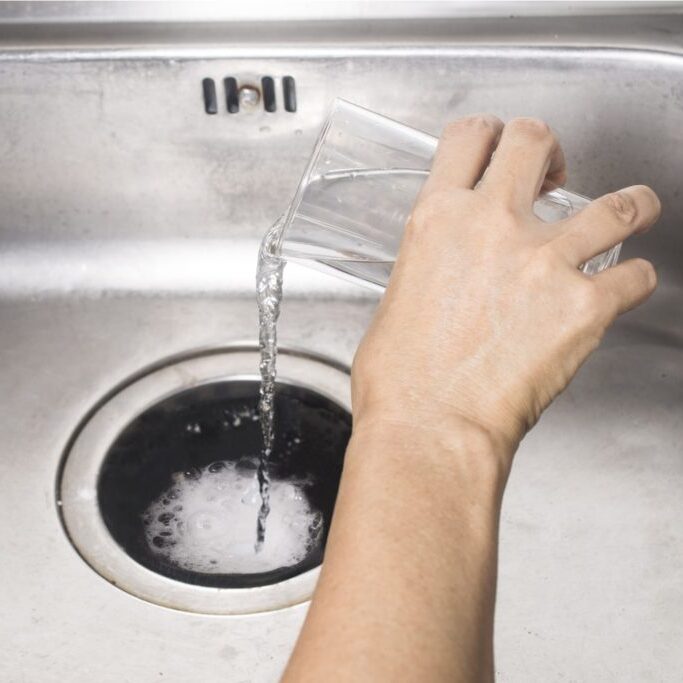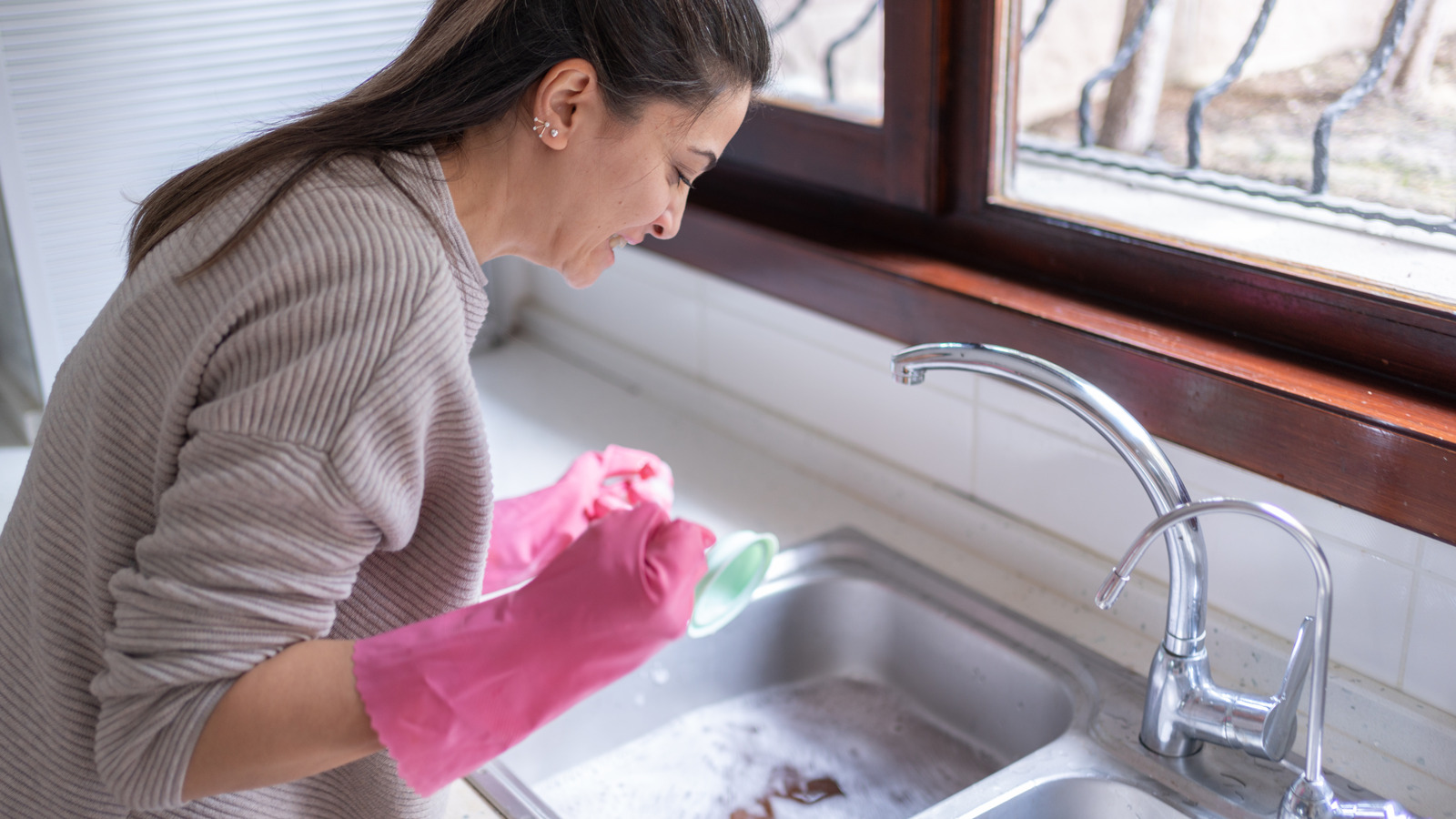Simple Methods To Resolve A Slow-Draining Sink
Simple Methods To Resolve A Slow-Draining Sink
Blog Article
Right here on the next paragraphs you will find a bunch of sound resources all about 7 Ways To Fix A Slow-Draining Sink Before You Call A Plumber.

Intro
We've all been there: You're brushing your teeth or washing your hands, and you observe the water merging in the sink. Rather than rapidly swirling down the drain, it sticks around, turning your once-refreshing morning regimen into a mini overload scene. A slow-draining sink isn't just annoying; it's typically an indicator of bigger plumbing concerns prowling below the surface. Fortunately is that the majority of slow-draining sinks can be fixed with a little know-how, a few fundamental tools, and some persistence. Prepared to tackle this task head-on? Allow's roll up our sleeves and dive right in.
Understanding the Sources Of a Slow-Draining Sink
Before you begin poking around in your pipes, it aids to know what may be causing the downturn. Recognizing the root cause makes it less complicated to pick the right fix.
Tools and Materials You'll Require
The right tools make all the distinction. The good news is, you will not require a totally stocked plumbing technician's van to finish the job.
Step-by-Step Overview to Fixing a Slow-Draining Sink
Currently, let's get involved in the nitty-gritty. This detailed process will certainly direct you via basic techniques to recover your sink's drainage.
Action 1: Remove and Clean the Stopper
Often, the stopper (that tiny plug you push down to obstruct water) is the very first offender. Remove it very carefully and wipe any type of hair or gunk caught around its base. Wash it extensively prior to putting it back in position.
Step 2: Make Use Of a Plunger to Remove Particles
Got that bettor ready? Placement it over the drain and give it a couple of firm pumps. The concept is to create suction that can loosen up any obstruction. If you see bits of debris drifting up, you're on the appropriate track.
Step 3: Try a Drain Serpent or Wire Hanger
If the bettor does not work, it's time to highlight the drainpipe serpent. Gently feed it into the drain and spin as you go. You could feel some resistance-- that's most likely the clog. Keep twisting and pulling up until you eliminate the blockage. If you don't have a drainpipe serpent, a straightened wire hanger can operate in a pinch.
Tip 4: Use a DIY Drainpipe Cleanser
A natural cleaner made from cooking soda and vinegar can break down residual crud. Put half a cup of baking soft drink right into the drain, adhered to by half a cup of vinegar. Let it fizz for about 15 minutes, after that flush with hot water. This chain reaction frequently does wonders for minor obstructions.
Tip 5: Reassemble and Examine the Sink
Placed whatever back together and run the tap. Does the water now swirl down the drain at a respectable speed? If yes, offer yourself a pat on the back. Otherwise, don't despair-- there are still a couple of more tricks up your sleeve.
Crucial Tools for DIY Fixes
A plunger is your best starting factor. A small, sink-sized bettor creates suction that can dislodge minor obstructions. For even more persistent obstructions, a drain serpent (sometimes called a plumber's auger) works marvels. A pair of gloves, a flashlight, and perhaps a pair of protective goggles are also helpful.
Advised Cleaning Solutions
Moderate recipe soap and hot water can aid break down greasy build-up. A blend of cooking soft drink and vinegar is a time-tested natural home remedy, and chemical cleaners use an even more eco-friendly approach. Keep chemical drain cleaners as a last hope, as they can be harsh on your pipelines.
Usual Culprits Behind Slow Drainage
So, what's clogging points up? Typically, it's a mixture of everyday debris-- think hair, soap residue, tooth paste residue, and leftover food bits. In time, these tiny bits gather and hold on to the pipeline walls, slowly tightening the passage and making it harder for water to travel through. In some cases, mineral deposits from hard water can also contribute to the substance, producing the ideal storm for persistent blockages.
When is it Time to Do Something About It?
If you observe the water draining slower than normal, it's a good concept to interfere quicker as opposed to later on. Waiting also long could cause finish blockages, unpleasant smells, or even pipe damage. If the water takes greater than a couple of secs to clear out after shutting off the tap, consider it a warning and prepare yourself to place on your DIY hat.
Safety First: Precautions and Prep work
Prior to you launch into unclogging mode, think about safety and security. You're managing possibly dirty water and debris, so slip on a set of gloves. If you're utilizing chemical cleaners, ensure the space is well-ventilated and adhere to the instructions on the label.
Protective Gear and Work Area Configuration
Set some old towels or rags around the sink area to capture splashes. Clear away any kind of products that might enter your method, like soap dispensers or toothbrush owners. Make certain you have good lights-- get a flashlight if required.
Alternate Techniques for Stubborn Clogs
Not all obstructions are produced equivalent. If your sink still refuses to comply, consider these alternate solutions.
Baking Soda and Vinegar Approach
We currently touched on this, but it's worth keeping in mind again. This gentle, green method is more secure than chemical cleaners and commonly fairly effective.
Chemical Drainpipe Cleansers
Enzyme-based cleaners utilize all-natural microorganisms to absorb organic matter. They're an exceptional choice if you're looking to stay clear of extreme chemicals. Just keep in mind, they may take a bit longer to work their magic.
Chemical Drainpipe Cleaning Company: Advantages And Disadvantages
Chemical cleansers can blast with challenging clogs quick, yet they're not without disadvantages. They can generate warm and fumes, damage pipes if used exceedingly, and present environmental dangers. Use them moderately, and constantly follow the directions very carefully.
Preventive Measures to Maintain Your Sink Flowing
Avoidance is the most effective remedy. By embracing a couple of straightforward routines, you can maintain your sink from decreasing to begin with.
Normal Cleaning Routines
Clean down the sink container and fixture area frequently. Get rid of hair or food fragments prior to they have a chance to wash down the drainpipe.
Avoiding Damaging Compounds Down The Tubes
Hesitate before dumping coffee premises, oil, or fibrous vegetable scraps down the sink. These perpetrators hold on to pipeline walls, developing obstructions in time.
Regular Upkeep Checks
Arrange a quick monthly examination. Run hot water via the sink for a few minutes, taking note of the flow. If it appears slow-moving, act quickly prior to it comes to be a full-on clog.
When to Call a Professional Plumbing
In some cases, no matter how tough you attempt, that block just will not move. That's when it's time to generate the pros.
Signs That Indicate an Extra Significant Problem
If your sink drains pipes slowly despite numerous efforts, or if you see water supporting in other fixtures (like your shower or commode), you may have an extra severe plumbing problem lurking much deeper in the system.
Stabilizing Do It Yourself Efforts with Specialist Assistance
While do it yourself can save you cash and use a sense of achievement, there's no embarassment in calling a professional. A specialist plumbing technician can assess your entire pipes setup, making sure there's no underlying damages or long-term problem that might cost you extra down the road.
Comparing Expenses and Long-Term Solutions
Prior to choosing, consider the big picture. An inexpensive, quick fix could solve the problem temporarily, but buying an extra irreversible remedy can conserve you cash and anxiety in the future.
Considering the Costs of DIY vs. Professional Fixes
DIY fixes commonly set you back little more than the cost of a bettor or a container of cooking soda. Specialist solutions, on the other hand, included a cost yet might prevent repeated problems and expensive fixings later on.
Purchasing High Quality Fixtures and Upgrades
If your sink's style contributes to regular blockages, it might be worth updating to higher-quality components or changing the plumbing format. Consider this a financial investment in your house's performance and comfort.
Verdict
A slow-draining sink can feel like a small inflammation, yet it's often an indicator that your plumbing requires a little tender loving care. By understanding the source, using the right devices and techniques, and dedicating to basic safety nets, you can keep your sink streaming freely. And when all else stops working, never wait to contact an expert-- your home's plumbing is worth the investment in care and upkeep.
Three Common Ways to Fix a Slow Drain
Baking Soda Method
Boil a full pot of water. Measure out cup of baking soda and pour it down the drain. Then take cup of the magical cleansing substance known as white vinegar and drop that down there too. Allow the mixture to fizz in the drain for five minutes as the vinegar and baking soda combine. Now dump in that whole pot of boiling water. This combination of cleaning substances should clear out anything that is causing your sink to drain slowly. If it doesn t...
Zip-It
If the baking soda method doesn t clear out your drain, it may be because a significant amount of hair and/or other debris has collected there and you need to remove it. Purchase a Zip-It tool at any home improvement or hardware store and insert it into your drain. It will catch any collected hair or debris that s blocking the flow of water. Pull it out. If it s got a big clump of hair, etc. on the end, you ve probably got your culprit.
Drain Cleaner
If these methods don t work, there is the standard drain cleaner that you can also buy in a hardware store or even your local grocery store. It s better if you can use a household solution, but these drain cleaners often work in a pinch. They re very simple to use. You generally just dump them in your drain and wait. If even this method is not effective, it may be time to call the plumber.
https://www.mrrooter.com/oneida/about-us/blog/2017/july/three-common-ways-to-fix-a-slow-drain/

Do you enjoy more info about 4 Tips to Fix a Slow Draining Sink? Place a remark further down. We would be happy to find out your opinion about this page. Hoping that you visit us again before long. In case you appreciated our article plz make sure you remember to pass it around. Thanks for your time. Return soon.
Book Your Service Report this page